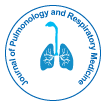Nuestro grupo organiza más de 3000 Series de conferencias Eventos cada año en EE. UU., Europa y América. Asia con el apoyo de 1.000 sociedades científicas más y publica más de 700 Acceso abierto Revistas que contienen más de 50.000 personalidades eminentes, científicos de renombre como miembros del consejo editorial.
Revistas de acceso abierto que ganan más lectores y citas
700 revistas y 15 000 000 de lectores Cada revista obtiene más de 25 000 lectores
Indexado en
- ICMJE
Enlaces útiles
Revistas de acceso abierto
Comparte esta página
Abstracto
Tendencias y características de los niños y adolescentes estadounidenses con cáncer de pulmón de células no pequeñas
Erdal en
Antecedentes: Una parte de los pacientes con cáncer de pulmón de células no pequeñas (CPCNP) presentan la enfermedad a una edad más temprana (40 años), a pesar de que la edad media en el momento del diagnóstico de CPCNP es de 70 años. Se sabe poco sobre las tendencias temporales en la incidencia de CPCNP en personas jóvenes, sus características y sus resultados.
Métodos: Para reunir los casos de CPCNP de 1978 a 2010, se consultaron las bases de datos de vigilancia, epidemiología y resultados finales. Se evaluaron las tasas de incidencia anual para diferentes grupos de edad, grupos raciales, sitios de la enfermedad, histologías, regímenes de tratamiento y resultados. Creamos curvas de supervivencia de Kaplan-Meyer con estratificación específica por edad.
Resultados: Entre 1978 y 2010, los pacientes jóvenes representaron el 0,6% de los nuevos casos de CPCNP. Durante este tiempo, hubo una disminución considerable en la incidencia de CPCNP en jóvenes. Los CPCNP jóvenes tenían más probabilidades de tener histología de adenocarcinoma (59%), un mayor porcentaje de mujeres (51%, asiáticos o isleños del Pacífico (14%) y metástasis distantes cuando fueron diagnosticados por primera vez (68%). La raza negra fue un mal predictor de la salud futura entre los jóvenes, en contraste con la población general.
Conclusión: Entre 1978 y 2010, se observó una disminución de la prevalencia del CPCNP en los jóvenes. Los aspectos clínicos del CPCNP en los pacientes más jóvenes, como la distribución demográfica, el tratamiento y el pronóstico, difieren de los observados en los pacientes mayores.
Revistas por tema
- Agricultura y acuicultura
- Alimentación y Nutrición
- Bioinformática y biología de sistemas
- Bioquímica
- Ciencia de los Materiales
- Ciencia general
- Ciencias Ambientales
- Ciencias Clínicas
- Ciencias farmacéuticas
- Ciencias Médicas
- Ciencias Sociales y Políticas
- Ciencias Veterinarias
- Enfermería y atención sanitaria
- Física
- Genética y biología molecular
- Geología y Ciencias de la Tierra
- Ingeniería
- Inmunología y Microbiología
- Química
Revistas clínicas y médicas
- Anestesiología
- Biología Molecular
- Cardiología
- Cirugía
- Cuidado de la salud
- Dermatología
- Diabetes y Endocrinología
- Enfermedades infecciosas
- Enfermería
- Gastroenterología
- Genética
- Inmunología
- Investigación clínica
- Medicamento
- Microbiología
- Neurología
- Odontología
- Oftalmología
- Oncología
- Pediatría
- Toxicología

 English
English  Chinese
Chinese  Russian
Russian  German
German  French
French  Japanese
Japanese  Portuguese
Portuguese  Hindi
Hindi